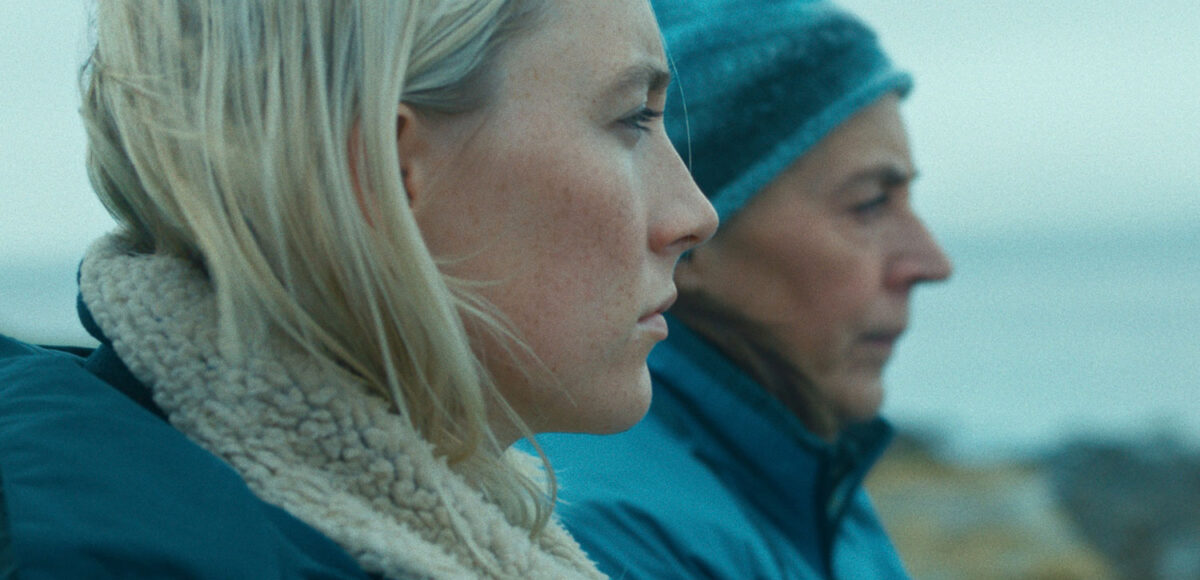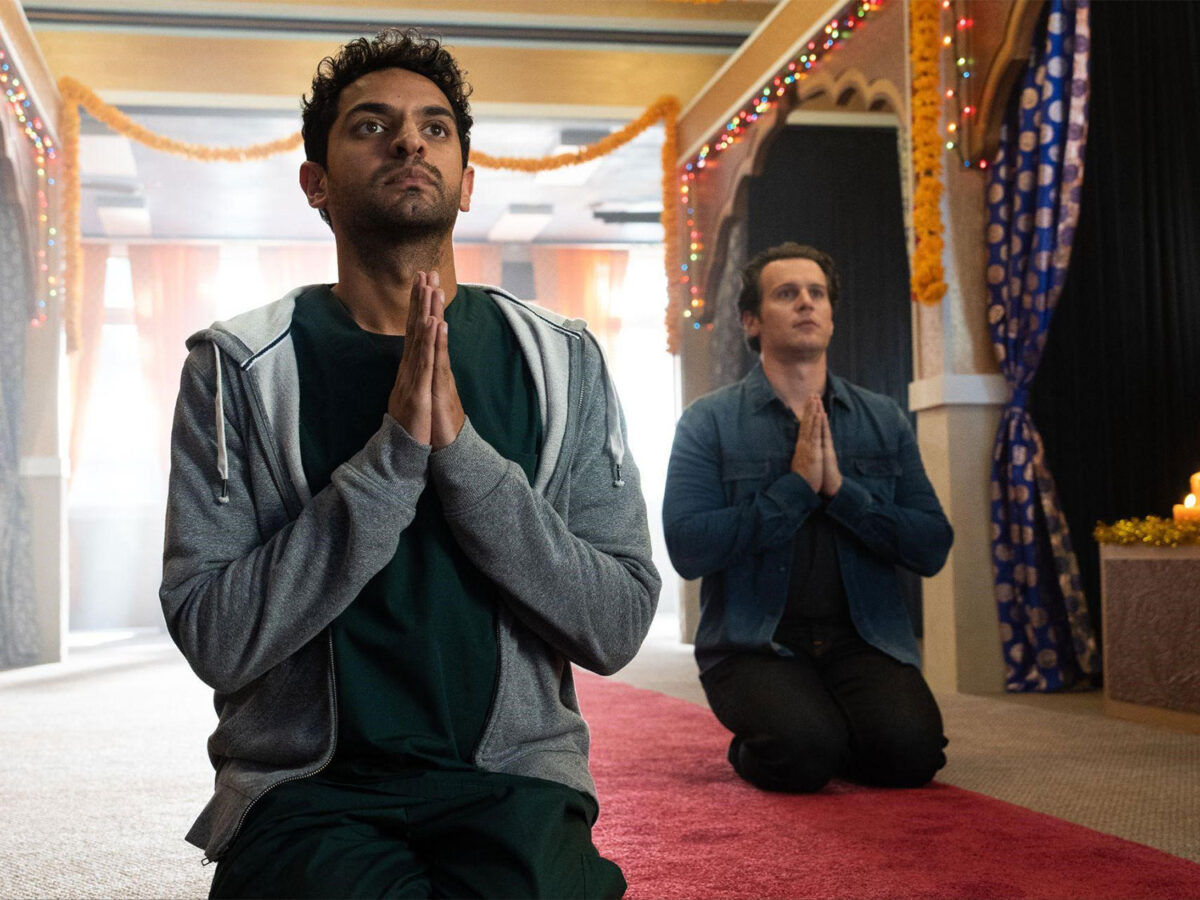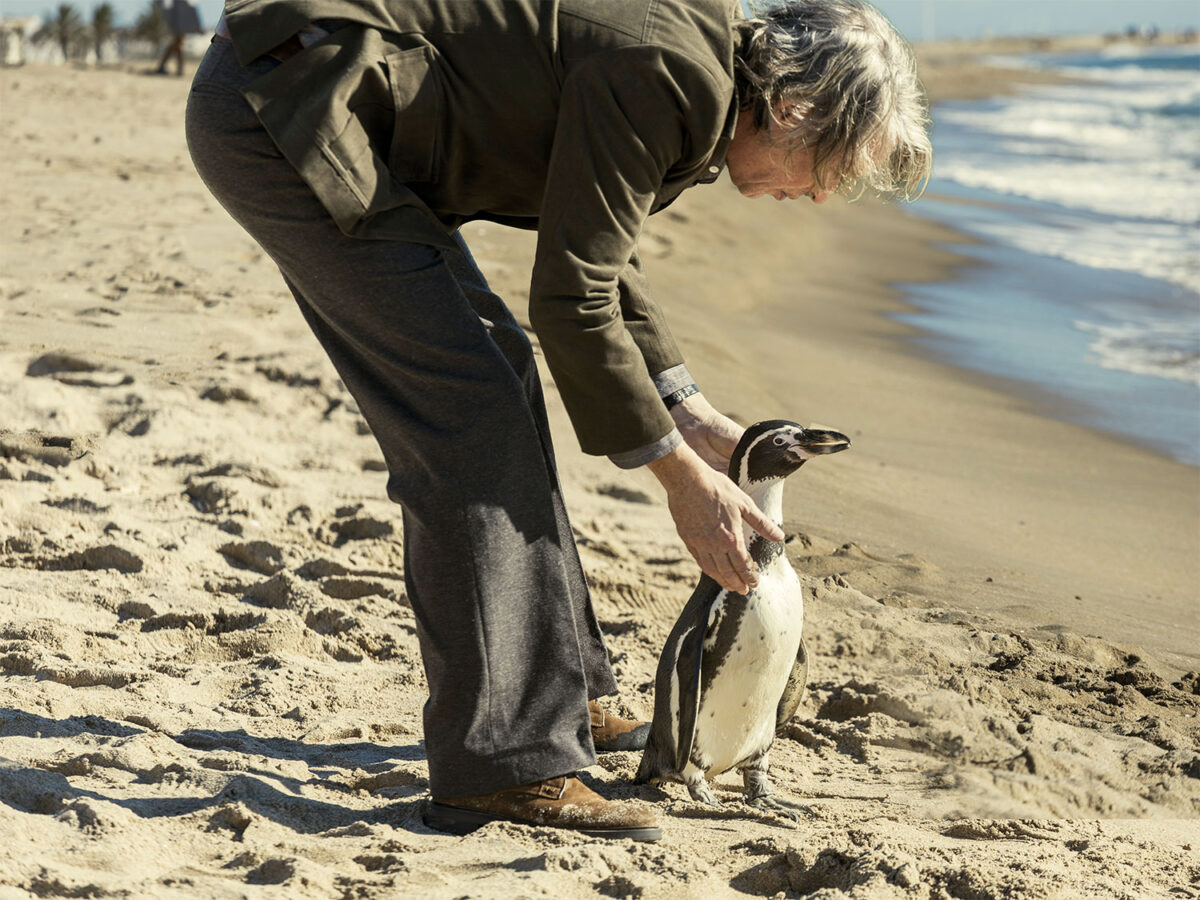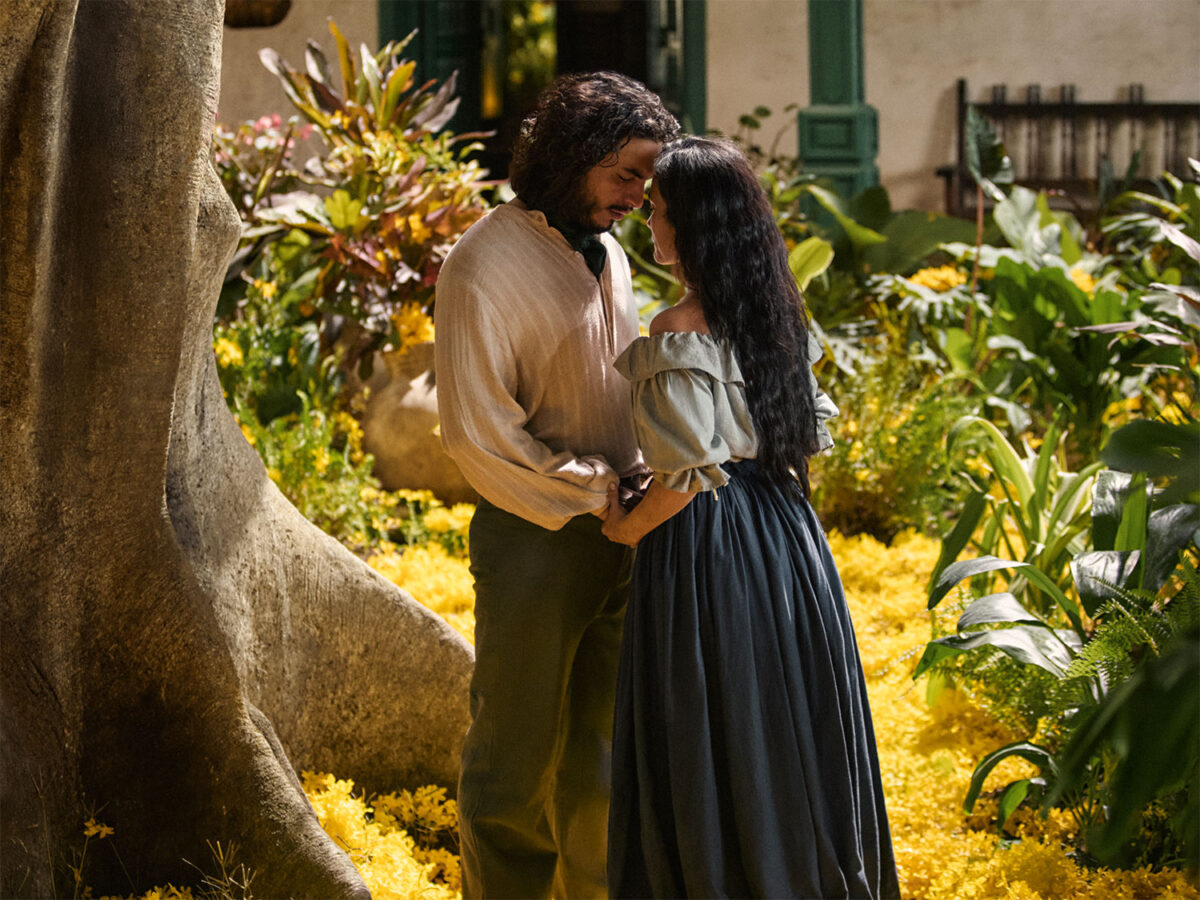“The Outrun,” written and directed by Nora Fingscheidt and based on Amy Liptrot’s memoire, is a screaming banshee, a witch dance to exorcize demons, an embrace of sea gods and a tribute to the concept of “one day at a time.”
Rona, on the cusp of her 30th birthday, has run smack into a wall, a wall that has always been hiding in plain sight. She is an unapologetic alcoholic; a girl who just wants to have fun. Growing up in the remote Orkney Islands of Scotland, she found release when, leaving for school, she landed in London. No guardrails, no limits, no storms or crashing waves beyond the ones that were self-created. Life was a never-ending party at bars where everyone knew her name, or at least they knew her proclivities. Like so many on that circuit, she’d wake up in the morning, not knowing what she’d said or done and apologize profusely to her boyfriend, the eternally patient Daynin. “It will never happen again,” she declares. But of course it does, night after night. She didn’t need help; she needed self-discipline. Or that’s what she believed, long after her losses began piling up. There was still another drink at the bar.
“The Outrun” is a sobering, realistic look at a life out of control that never loses hope. Having hit rock bottom, or at least the first one she’s willing to acknowledge, she makes that first step toward recovery. But this is only the start, yielding a moment of self-realization, understanding for the first time that she can’t do this alone. She needs to return home to the isolated, boring, blustery island of her youth; to return to her mother’s house on the sheep farm her father tends. Father, Andrew, is warm and embracing when he’s not engulfed in the frenzy of his bipolar disease. Living with her mother is equally challenging. After caring hopelessly for her husband, she did as so many in untenable positions have done. She found God, a god who infiltrates every corner of her life; one that she tries incessantly to bring to her unwilling daughter. But Rona’s demons continue to follow her: the nothingness of the Orkneys, the imagined ones of the howling at night and the mythological creatures in her head.
Fingscheidt tells this compelling story out of sequence, pulling us backwards and forwards in time as Rona’s life unfolds like a fish being reeled in and cast out, reeled in and cast out. All the focus is on Rona and, although the topic is serious and her actions are heart-stoppingly agonizing, the overall effect is always one of hope. No matter how far Rona falls, no matter what she does, there is still a ray of determination and self-awareness. She runs, she twirls, she lives, and as distressingly hopeless as it seems, she always finds moments of self-discovery and awareness. The speed at which she spirals is in direct contrast to the assurance that she gains during moments of comprehension. Lost at home and equally lost in the big city, Rona is desperately trying to find where she fits in this world. It seems such a contradiction in terms, given the subject matter, but this is a very uplifting film, as full of moments of joy and generosity as it is of tragedy barely averted. And why is that?
Saoirse Ronan is the answer. Always a compelling actress, even at the age of 13 in her Oscar-nominated performance for “Atonement,” she finds all the colors of her lost character and paints her with depth and dimension. You agonize over her failings and celebrate her successes. The truth is found in her silence, a silence that is as engulfing as the rock ledges over the crashing waves where she sits in contemplation. Ronan has made it all very personal, for her and for you.
Saskia Reeves plays her mother empathetically and almost non-judgmentally. Although not an alcoholic, she lives her life through the Serenity Prayer: “God grant me the serenity to accept the things I cannot change, the courage to change the things I can and the wisdom to know the difference.” It speaks to the unconditional love of her daughter and her understanding of her divorced, but still dependent husband. Stephen Dillane, as Rona’s father, brings a subtlety to the submerged craziness of his almost untreatable manic depression. But it is clear that he loves Rona as much as he can, treasuring the moments they spend together when he’s not beset by mania. When he asks Rona to help him tend to the outrun, it highlights the dual nature of the word. For the Scots, it is a piece of grazing land on the outer limits of a farm, but for Rona and her father it is also the effort to outrun the demons chasing them both, tossing them to those same outer limits where hope still reigns. The cinematography of the otherworldly terrain of the Orkney Islands is extraordinary, making those islands and the crashing waves a character alongside the human inhabitants.
“The Outrun” is a realistic and often harrowing depiction of alcoholism that may have triggers that start it but is without brakes to end it. The disease has been depicted many times to great effect in the past. Ray Milland won an Oscar for his performance in “The Lost Weekend,” as did Nicholas Cage for “Leaving Las Vegas” and Jeff Bridges for “Crazy Heart.” Saoirse Ronan’s acclaimed performance as Rona is their equal and more.
This small, independent movie gives hope to the future of cinema as more and more of the major studios are producing sequels to franchise popcorn fare leaving adult viewers less and less of the landscape to hold on to. “The Outrun” is definitely something to hold on to. The hope for Rona is also hope for us.
Opening Oct. 4 at the AMC Century City 15 and the Laemmle Royal.
Neely Swanson spent most of her professional career in the television industry, almost all of it working for David E. Kelley. In her last full-time position as Executive Vice President of Development, she reviewed writer submissions and targeted content for adaptation. As she has often said, she did book reports for a living. For several years she was a freelance writer for “Written By,” the magazine of the WGA West, and was adjunct faculty at USC in the writing division of the School of Cinematic Arts. Neely has been writing film and television reviews for the “Easy Reader” for more than 10 years. Her past reviews can be read on Rotten Tomatoes where she is a tomato-approved critic.







